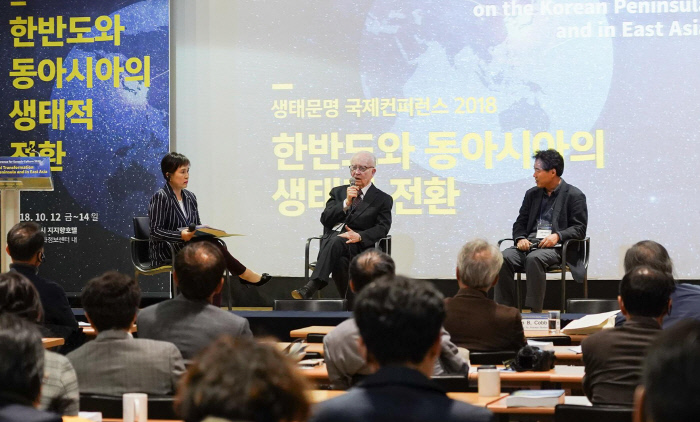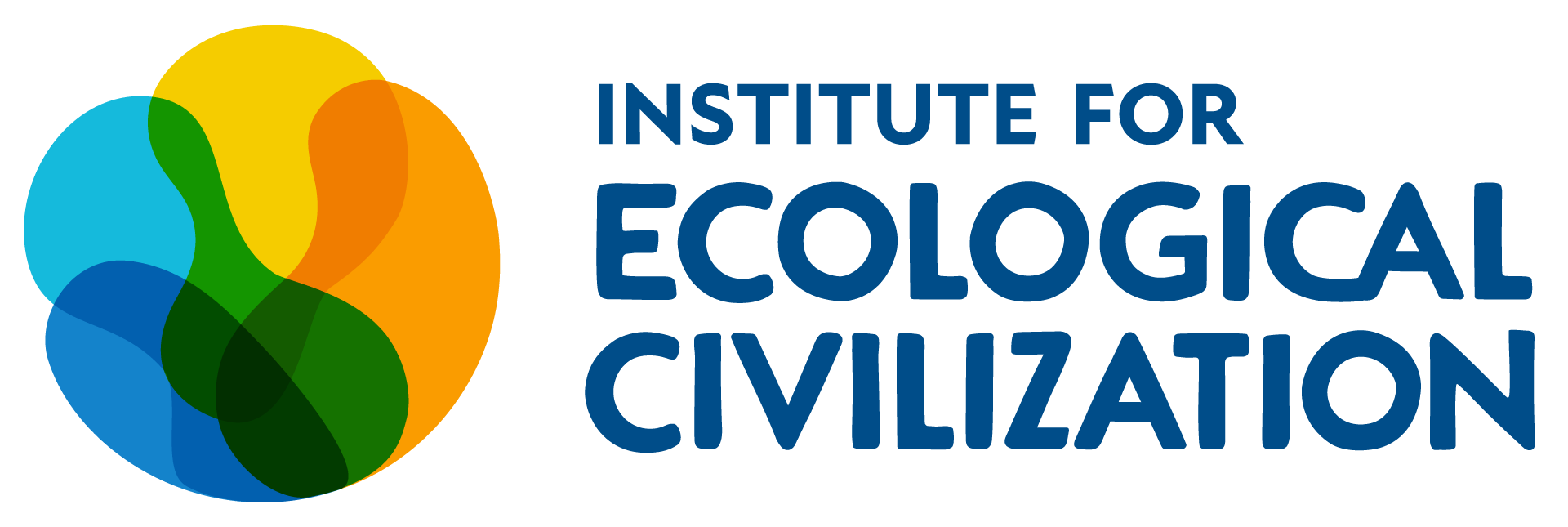“Ecological civilization must be realized with an ecological economy and education that serves the Earth”

By Kim Yu-Jin
“You may believe that it is too late to avoid the consequences of climate change. But if we discontinue unsustainable practices now and make the correct choices, we can save billions of people.”
Urgency emanated from the words of Dr. John Cobb, Professor Emeritus of the Claremont Theological Seminary who is considered to be one of the leading theologians of our time. Since the publication of his book Isit Too Late? which catalyzed the field of “ecological theology” in 1971, Cobb dug deep into the subjects of ecological civilization and environmental thought.
At the 2018 International Conference on Ecological Civilization, held on November 12th, Cobb declared, “I have been thinking about environmental issues for more than 50 years, but recently I feel that the situation has gotten even worse.” He revealed that “the Trump administration has been the worst possible leader on the issues of climate change, ecology, and the environment,” lamenting that “it is heartbreaking that Trump is trying to reverse what small progress we have made.” Cobb also said, “Fortunately,people are realizing that they cannot leave this problem to the government,”noting the “spirit of activism in the public sphere, cities, and political parties.”
Cobb especially emphasized the role of peace on the Korean Peninsula, in the transition toward an ecological civilization. “War threatens the most serious suffering,” he said, urging that “the most important call of the Koreans right now is to make peace on the Korean Peninsula. It will be a great contribution to the entire world if you make another war in Korea impossible.”
Kang Kum-sil, representative from People for Earth Forum and the facilitator of the discussion, said, “The issue of the economy is the biggest obstacle to pursuing an ecological civilization, and Korea is still immersed in a growth-centric world view.”
Cobb replied, “The insanity of the present system is so high that it is inadequate to solve just a few problems. We must measure economic progress on the basis of whether it is helpful to human beings, not on the quantitative aspects of market activities. The government must officially promise to move towards an ecological civilization and stop measuring progress based on GDP.
Father Lee Jae-don (adjunct professor the Nicholas Cardinal Cheong Graduate School for Life at The Catholic University of Korea), speaking up as an interlocutor, said, “Our expression for the word ‘economy’ is‘livelihood,’ which derives from ‘life.’ The economy and politics should move in a direction that sustains human happiness.”
Cobb emphasized that, in order to realize an ecological civilization, there must also be a transformation of the educational system along with economic reform. He said, “Jesus said one cannot serve two gods, but we are currently serving another god called wealth. We need to educate people to serve the earth.” Cobb described how China will be requiring all university students to take a course related to ecological civilization on ecological civilization, beginning next year. Traveling the world as an environmental thinker and activist even at the age of ninety, Cobb urged, “If you want to be a true disciple of Jesus, you have to save the planet first. Let us work together.”
The organizations that hosted the conference, including the People for Earth Forum, the Seoul National University-Hanshin University Posthuman Research Center, the Future Civilization Research Institute of Kyunghee University, and the Center for Process Studies, announced the Declaration of Ecological Conversion of the Korean Peninsula and East Asia (Paju Declaration)and revealed that “In order to inaugurate an era of genuine peace and prosperity in Korea and East Asia, and then across the international community,we must move beyond the old paradigm of the 20th century industrial civilization marked with climate change, nuclear weapons, and frequent wars.”
The Paju Declaration states, “There must be a paradigm shift to a mutually enhancing reciprocal relationship between human beings and the earth, and we must recognize the problems of ecological crisis, polarization,and exclusive governance as citizens of the earth and take collective responsibility.” The Declaration proposed economic reorganization, the pursuit of ecological science and technology, and establishing an earth-centric governance model such as earth law. It declared, “Peace and prosperity on the Korean peninsula must be pursued through reflection over the present civilization, and within the new imagination of transitioning into an ecological civilization, working with citizens of the earth.”
The conference, which was attended by more than 100 ecological experts from Korea and abroad, was held at the Paju Asia Publishing Culture Information Center with the theme of “Ecological Transformation of the Korean Peninsula and East Asia.” David Korten, former professor at Harvard Business School, and Won Tae Joon, professor at the People’s University of China, delivered a special lecture on the theme of “Citizen Efforts to Transform the Systems of Civilization.” Discipline-specific presentations and discussions were held on the details of ecological civilization theory,ecological economic systems, scientific technology and ecology, ecological culture, and sustainable learning.
Dr. Jung Gunna of the Hanshin University economics department claimed that “The economic system of an ecological civilization must be an ecological economy managed within the constrained capacities of the earth.” He further declared, “We must build a decentralized, region-specific socioeconomic ecosystem that centers renewable energy, agriculture, transit,and human services.”
“All species are interdependent, and mankind has only one earth,” said Song Tian, professor of philosophy at Peking University in Beijing. “The only hope for human beings at this critical junction is to transform our industrial civilization into an ecological civilization, and in order for this to occur, we need a non-mechanical perspective about nature.”
Baekdudaegan, an ecological axis of the Korean Peninsula, is facing a crisis due to deforestation, climate change and reduction of biodiversity in North Korea. “It is now time for South and North Korea collaborate in order to leave their descendants a healthy ecosystem community on the peninsula, rather than prioritizing short-term political or economic effect or benefits.”
This article was originally published in Korean. Go here to read the original text.
